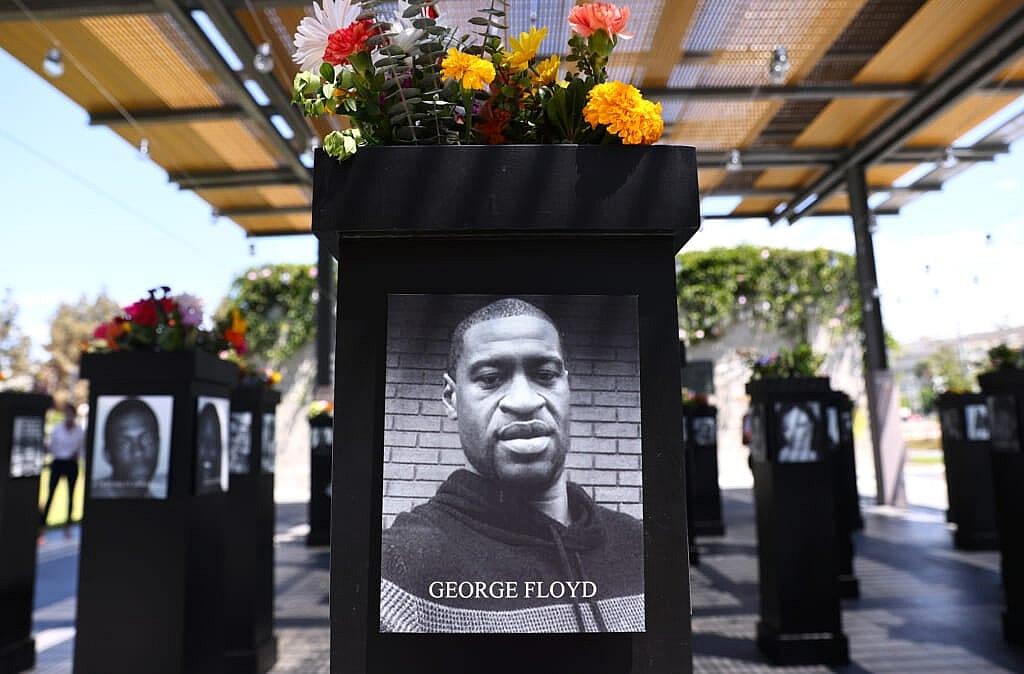The Harris County Public Defender’s Office applied for clemency for the late George Floyd for a 2004 drug conviction in Houston for which he spent 10 months in jail.
The Texas Board of Pardons and Paroles voted unanimously to approve the request this week, according to an NBC News report.
“The board does not conduct interviews regarding individual clemency recommendations. A recommendation is rendered on each case after the totality of information is considered,” said Timothy McDonnell, a spokesman for the board.
The recommendation for clemency will now head to the desk of Governor Greg Abbott, who has not commented on whether or not he will sign off on the request.
“We lament the loss of former Houstonian George Floyd and hope that his family finds comfort in Monday’s decision,” Harris County District Attorney Kim Ogg said in a statement. “We do not support the integrity of Mr. Floyd’s conviction and agree these circumstances warrant a posthumous pardon. We urge Governor Abbott to follow the board’s recommendation and grant clemency.”
Floyd was arrested in 2004 for selling $10 worth of crack to an undercover police officer. He later pleaded guilty to the charges and was sentenced to 10 months in jail.
The officer in question, Gerald Goines, was later charged with two counts of murder in 2019 and was accused of lying to obtain warrants in a drug raid where two people died and five officers were wounded. He later retired from the Houston Police Department and more than 1,400 of his criminal cases were reviewed by prosecutors.
In May of 2021, two people arrested by Goines were exonerated of their charges. Goines remains under indictment but has not gone to trial for his murder charges. Another officer, Steven Bryant pleaded guilty in June of this year to federal charges of falsifying records to protect Goines.
Goines has been accused of creating false arrest records and, according to the Daily Mail, more than 180 of his convictions have been dismissed.
Civil rights attorney Ben Crump released a statement urging Abbott to “act swiftly,” and issue a full pardon to Floyd. “But it’s even more important for the governor to assert his leadership to pass meaningful police and criminal justice reform,” said Crump.
“Like the U.S. Senate, the Texas Legislature left undone the hard but necessary work of protecting residents from unacceptable police violence. This work must be completed. This drug charge, which led to George Floyd’s conviction based on false evidence, helped to unravel his life. Similarly, tens of thousands of Black lives are ruined by a criminal justice system that uses the war on drugs to target Black people, force them into felony pleas, incarcerate them, take away their voting rights, and destroy their families,” he continued.

George Floyd was murdered on May 25, 2020 by former Minneapolis Police Officer Derek Chauvin who responded to a local market on suspicion of a person using a fake $20 bill. After kneeling on Floyd’s neck for nearly nine minutes and taking the man’s life, Chauvin was later convicted to 22 and a half years in prison.
The murder and video of the incident sparked protests across the globe and motivated the now-stalled negotiations of the George Floyd Justice in Policing Act in Congress.
Have you subscribed to theGrio’s podcast “Dear Culture”? Download our newest episodes now!
TheGrio is now on Apple TV, Amazon Fire, and Roku. Download theGrio today!

